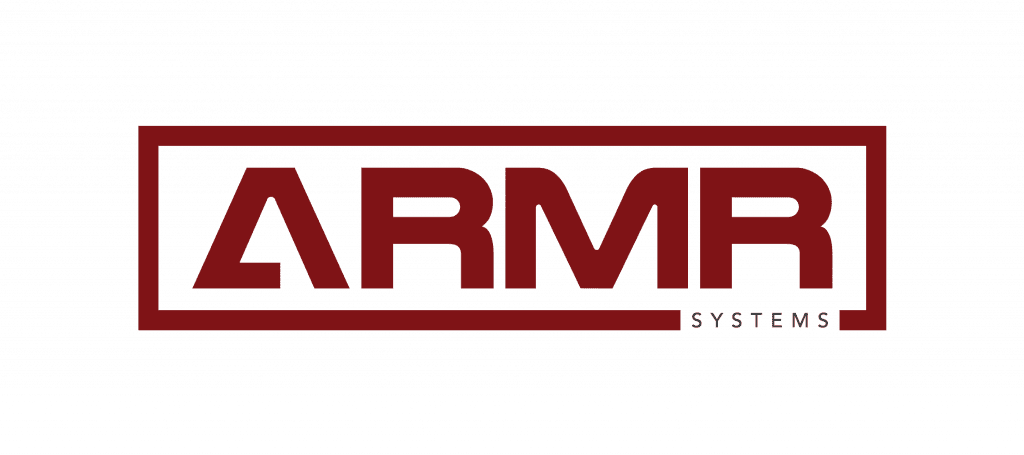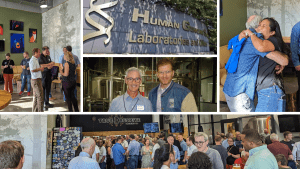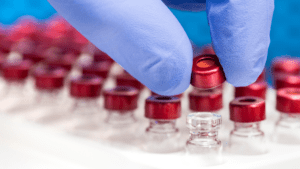
Baltimore Medtech Sector a Key Asset for Ascending Biotech Cluster, Part Two
This is Part Two of our series on the vibrant Baltimore medtech ecosystem gaining significant momentum in Baltimore. Part One featured five exciting companies, including CoapTech, JuneBrain, ClearMask, LifeSprout, and NextStep Robotics.
While there has been a medtech presence in Charm City for years, the acquisition of Harpoon Medical by Edwards Lifesciences Corporation is seen as a major milestone for this ecosystem. This $250M deal sparked the creation of several other successful medical device companies and put the Baltimore medtech community on the map as a hotbed of activity and investment.
In Part Two, we will highlight six additional Baltimore medtech companies, two of which have Harpoon Medical acquisition roots.
Sisu Global Health

Founded in 2014 by Carolyn Yarina (CEO), Gillian Henker (CTO) and Katie Kirsch (former CMO), Sisu Global Health is developing and scaling medical devices made specifically for the global market.
The company is developing leading-edge life saving tools for doctors and patients of the developing world. Sisu Global’s first product, The Hemafuse, is a device that is able to collect and filter a patient’s own blood to be transfused back to the patient during surgery, without using electricity. Donor blood isn’t always available in many parts of the world, and if it is, it’s quite costly. According to Sisu Global’s website, there is a 100 million unit deficit of donor blood around the world.
Surgeries require at least two units of transfused blood for one patient. The cost of a Hemafuse device is comparable to one unit of donor blood, but the device can salvage multiple units for one patient. It can then be autoclaved and reused again over multiple surgeries for different patients, saving hundreds of dollars for every surgery.
The Hemafuse device received FDA approval in August 2021; the device first received regulatory approval in Kenya and Ghana and has been helping to combat the 50-60% donor blood shortage across Africa. The company has another product, (r)Evolve, in development; this device, as per the company’s website, “…uses Sisu’s patented technology to manually centrifuge and effectively separate blood in any setting. The ability to centrifuge blood is crucial for the proper diagnosis and treatment of patients, by separating whole blood into plasma and serum you improve the accuracy of diagnostic tests, the efficiency of blood processing, and can easily transport blood samples. (r)Evolve provides a solution to centrifuge blood in any setting, with or without electricity, in a cost-effective manner.”
Sisu Global has been funded in part by Baltimore-based Camden Partners, a key investor in the Baltimore medtech and Maryland life sciences space. Most recently, the company was named a SXSW Pitch Competition winner; Sisu Global has also been highlighted by Forbes, CNBC Africa and Smithsonian.com, among others, and won numerous awards, including winning $100K from Steve Case as part of the Rise of the Rest Tour pitch competition.
Emit Imaging

Founded in 2018 in Boston, Emit Imaging is another promising medtech company that has relocated to Baltimore’s UM BioPark. Emit Imaging develops cutting-edge technologies, including micro Cryo-Fluorescence Tomography CFT technology for molecular imaging, biodistribution, drug discovery, genetic models, and molecular probes. Starting with a camera, Emit Imaging integrated a cryo-microtome and proprietary software to build a comprehensive platform. The company’s platform suite provides the most all-inclusive solution for high-resolution quantitative 3D fluorescence.
The company is attempting to disrupt fluorescence imaging through its lead technology product, the XerraTM platform. Xerra houses a 12MP high resolution camera, a 10 micron slicer, 6 lasers, 7 interchangeable emission filters, a refrigerated storage, and powerful software. Xerra automatically slices, images, reconstructs or renders in 3D and analyzes data sets. By performing as many as 1000 scans per specimen, Xerra extracts exponential volumes of data from a single sample.
Emit Imaging’s Xerra platform could revolutionize the imaging sector as it has broad application potential, including drug discovery, cancer biology, nanotechnology, neuroscience, molecular biology, and gene expression.
Sonavex, Inc.

Sonavex, Inc. is a medtech company focused on automated ultrasound solutions to quantify and visualize critical clinical data for surgeons who need reliable information on-demand. Ultrasound is the most effective way to detect soft tissue blood flow in patients, but is often left unutilized because it requires a trained eye to read results.
David Narrow co-founded Sonovex with the company’s President Dr. Devin Coon, whom he met while studying bioengineering at Johns Hopkins University (JHU). Since that fortuitous meeting, Sonovax has become a top emerging medical technology company, recently securing not one, but two FDA 510(k) clearances for their ultrasound-based medical devices. In June 2018, the JHU spinoff company announced that it received 510(k) clearance from the U.S. Food and Drug Administration (FDA) to market its EchoMark and EchoMark LP soft tissue markers. Most recently, in March 2019, Sonavex announced it received 510(k) clearance from the FDA for its EchoSure device to deliver definitive blood flow data on demand.
Most recently, Sonavax secured a $3M Phase IIB Small Business Innovation Research (SBIR) NIH grant that will support potentially validating “…its technology’s application to arteriovenous (AV) fistula maturation and viability for patients with end-stage renal disease (ESRD).” In July 2021, the company announced that it had appointed a Chief Medical Officer and formed an Advisory Board.
Serial entrepreneur Bill Niland—who spearheaded a watershed Baltimore medtech acquisition that sparked this medtech boom— is a backer of Sonavex and currently sits on the company’s Board of Directors. Notable Maryland-based investors include TEDCO and Baltimore’s Abell Foundation.
ReGelTec

ReGelTec, led by its CEO Bill Niland, is a medical device company developing the next generation of minimally invasive spinal implants for lower back pain and degenerative disc disease. Chronic lower back pain impacts 13% of people in the U.S., according to the company’s website. In the U.S. alone, low back pain causes $52M in healthcare visits annually, costs $291M in lost work days and $50B in healthcare costs in lost productivity per year, according to the company’s research.
HYDRAFIL™ is ReGelTec’s proprietary hydrogel technology currently in development. The product works in the following manner: when this hydrogel is heated it becomes a liquid that can be injected into the nucleus of an intervertebral disc. The gel then incorporates with the existing nucleus and cools to form an integrated solid. This implant mimics the biomechanical properties of the natural disc and preserves spinal motion.
HYDRAFIL received FDA Breakthrough Device designation in December of 2020. In February 2021, the company presented Early Feasibility Study (EFS) data at the American Society of Spine Radiology (ASSR) annual meeting that showed “…patients have an average reduction in their chronic low back pain of 78% at 3 months post-procedure.”
ARMR Systems

ARMR Systems is another Maryland BioPark-affiliated medtech startup. The company is developing a wearable hemorrhage control system designed to increase the survivability of traumatic battlefield injury in a situation where advanced medical support is not immediately available.
According to the ARMR website, “Our first-of-its-kind system comprises an ergonomically fitted, non-restrictive harness coupled with a tourniquet-style direct pressure device. The low-weight system can be worn passively by the user to be deployed following an incident or quickly applied to the user then engaged afterward. It provides rapid compression of damaged arteries in critical torso junctional areas that traditional tourniquets cannot reach.”
ARMR system’s mission is to make every soldier a medic and to reduce the number of military deaths caused by hemorrhage that occur annually. The company started in an incubator located in Massachusetts and then relocated to Baltimore, Maryland in 2018. In 2020, ARMR Systems announced a seed funding raise of $750K that included a $350,000 joint investment from the University of Maryland, Baltimore and the Maryland Momentum Fund. Naples, Florida-based Tamiami Angel Fund also participated in the round.
Capsulomics

Capsulomics is a service-connected disabled, veteran-owned biotechnology company that was founded in 2018 by CEO Daniel Lunz, a Johns Hopkins University (JHU) alum. Lunz served in the U.S. Marine Corps and is an Iraq combat veteran.
Capsulomics is a molecular diagnostics company focused on the early detection of upper gastrointestinal cancer and disease; the company was formed based on technology spun out of JHU. Capsulomics is currently developing early cancer and pre-cancer diagnostic tests to detect the future risk of cancer progression for patients diagnosed with the precancerous condition Barrett’s esophagus. Barrett’s esophagus is a condition caused by acid reflux where the esophagus’ lining thickens and becomes red. The test’s aim is to diagnose Barrett’s esophagus early when it can be treated and often cured.
Esophageal cancer kills approximately 16,000 people every year, making it the 3rd leading cause of cancer death in the U.S. The current diagnostic standard of care, which is an endoscopy, is both invasive and expensive, which often causes people to put off the procedure until symptoms arise. According to Capsulomics, 75% of diagnosed cases come after the cancer has already spread.
Capsulomic’s test uses DNA biomarkers to identify Barrett’s esophagus early and is potentially a more convenient, less expensive, and more accurate diagnostic test than what is currently available.
- About the Author
- Latest Posts
Steve brings nearly twenty years of experience in marketing and content creation to the WorkForce Genetics team. He loves writing engaging content and working with partners, companies, and individuals to share their unique stories and showcase their work. Steve holds a BA in English from Providence College and an MA in American Literature from Montclair State University. He lives in Frederick, Maryland with his wife, two sons, and the family dog.







